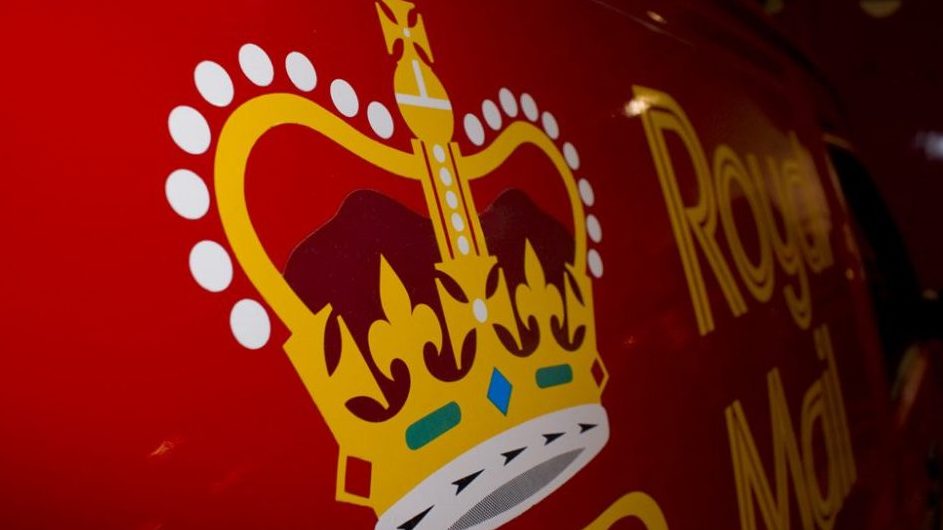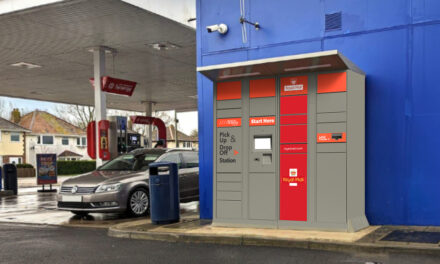
Royal Mail results: strong parcel growth alongside £20 million operating loss

Royal Mail has announced its Half Year Results 2020-21 showing Group revenue up 9.8%, driven by strong parcel growth at both Royal Mail and GLS. Group reported operating loss of £20 million and Group adjusted operating profit of £37 million.
Highlights
Royal Mail performance reflects opportunity from change in business mix:
• Revenue up 4.9% with parcels up 33.2% partly offset by letters decline of 20.5%;
• Adjusted operating loss2 of £129 million (H1 2019-20: profit of £75 million) with costs of mix change (£95 million), COVID-19 (£85 million), voluntary redundancy (£147 million) and international conveyance (£32 million)
• Adjusted operating loss in regulated business4 of £180 million, (H1 2019-20: £25 million profit) reflecting the decline in letter revenue;
• Addressed letter volumes (ex. elections) down 28% and total letter volume down 33%. Parcel volume up 31%;
• Government COVID-19 support not utilised during the pandemic.
• GLS performance boosted by exceptional volumes and short-term price initiatives in some countries:
• Revenue up 21.7% and adjusted operating margin 8.9%;
• Improved performance in focus countries (France, Spain and the US);
• Operating profit up 84.4% to £166 million.
Scenario update for FY2020-21:
• Uncertainty remains, particularly for Q4;
• Royal Mail revenue now projected to be £380 to £580 million higher year on year. Mix change costs increased to £210 million, cost of COVID-19 £155 million;
• Royal Mail would be better than break even at adjusted operating profit level if revenues outturn at higher end of scenario;
• GLS now projected as 21% to 23% revenue growth year on year, with c. 8% adjusted operating margin.
Keith Williams, Interim Executive Chair, commented: “The growth in online shopping and parcels during the pandemic, combined with our increased focus on delivering more of what customers want, has led to revenue growth of nearly 10% for the Group in the first half, with Royal Mail revenue up nearly 5%. For the first time, parcels revenue at Royal Mail is now larger than letters revenue, representing 60% of total revenue, compared with 47% in the prior period. GLS delivered strong revenue growth of 21.7%, with adjusted operating margin up by 300 basis points. B2C accounted for 56% of GLS volume in the first half.
“Across the Group, our people have worked incredibly hard to keep delivering for our customers during these unprecedented times, and I want to thank them for their dedication and commitment.
We have been pushing forward with our transformation in Royal Mail and delivering more new innovations, products and services for our customers. Whilst we have done exceptionally well in terms of revenue and have seen real growth for the first time since privatisation, we have recorded a first half adjusted operating loss of £129 million after restructuring charges of £147 million, and a reported operating loss of £176 million. As anticipated the reduction in letter volumes has had a significant impact on the regulated business which lost £180 million in
the first half, and demonstrates the need for change in the Universal Service.
“The level of revenue growth in the first half shows we have the right strategy and that Royal Mail can be cash generative and a sustainable, profitable business in the future. But we need to speed up the pace of change in order to create a profitable business in the UK. We are making good progress on the initiatives we set out in June. We are reducing management layers to increase our speed of decision making, directing the business towards those activities which generate quicker payback and focusing our capital expenditure on projects which will improve
our customer proposition and increase our efficiency. These initiatives should add to top line growth and generate a saving of around £330 million in operational costs. Talks with our unions are at an important stage. We have been encouraged by our talks with CWU, which have intensified over the past weeks. With the improved revenue performance, we have focused on how we can deliver efficiency and productivity in a growth environment together, which will enable the business to see the benefits of operational leverage.
“We are already working hard to deliver Christmas, recruiting around 33,000 additional flexible workers in Royal Mail over the peak season, and we continue to provide significant support to the Government’s COVID-19 testing programme and the distribution of protective equipment.
“In GLS our strong footprint, local market presence and operational agility have enabled us to successfully manage the challenges of COVID-19. GLS also benefitted from scale effects, along with successful pricing initiatives in certain markets. Our focus countries – Spain, France and the US – have emerged stronger and our task now is to continue the turnaround, lock-in and build on that success. GLS is well positioned to continue to benefit from the shift to B2C, cross-border growth and evolving customer needs towards more convenience and ease in receiving parcels.
“We have updated our scenario for the full year. As parcel volumes at both Royal Mail and GLS have continued to be robust year to date, revenue performance in the scenario has improved. It remains difficult to give precise guidance but parcel growth is expected to remain robust in Q3, with more uncertainty over trends in Q4 due to the development of the COVID-19 pandemic, further recessionary impacts and trends in international volumes.”
Commenting on the results, Alistair Cromwell, Acting Chief Executive of Citizens Advice, said: “Today’s financial update from Royal Mail makes clear that parcel delivery is now an essential service. As more people rely on deliveries, our research shows almost half of us (47%) have had a parcel delivery problem since lockdown first began in March. We need to ensure proper protections are in place across the sector so people get their deliveries securely.
”As the consumer advocate for the postal sector, we’re wary about any calls made to change the Universal Service Obligation. The Universal Service Obligation is a vital safety net that keeps post fair and affordable. Any rebalancing needs to reflect this, so it focuses on people’s needs, not just the bottom line.
“Even before the pandemic, six in ten people said they’d feel cut off from society if they couldn’t send or receive post. During these uncertain times, post is increasingly becoming a lifeline for many. It’s allowing people not only to stay connected with loved ones, but also to receive vital financial and health-related information.
“Nothing should be taken away from Royal Mail’s current provision without careful assessment.”













